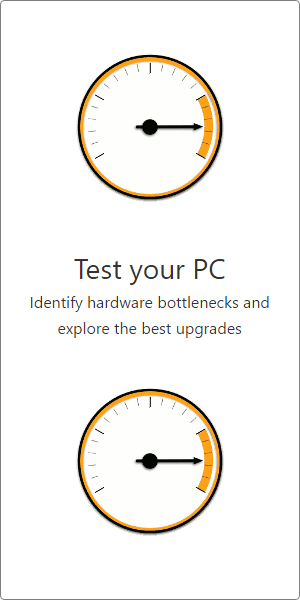Effective Speed
+7%
Poor: 65%
Great: 87%
SPEED RANK: 288th / 1442
Poor: 61%
Great: 89%
SPEED RANK: 212th / 1442
| Effective Speed
Effective CPU Speed |
76.3 % | 81.8 % | Slightly faster effective speed. |
Average Score
+6%
Overclocked Score
+10%
Value & Sentiment
+∞%
Nice To Haves
+66%
Conclusion
Average Bench 76.3%
Average Bench 81.8%
User Builds
7,071
312,220
Systems with these CPUs
Top Builds that include these CPUs
Frequently Asked Questions
Processors FAQ
ALL FAQs »

 CPU
CPU
